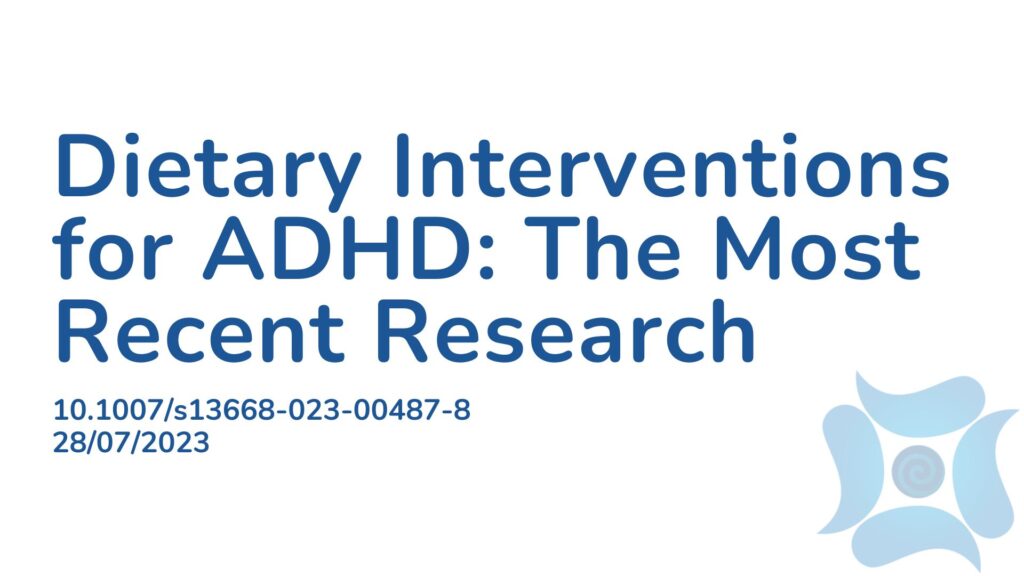Summary:
Attention-deficit hyperactivity disorder (ADHD) is a neuro-developmental condition commonly diagnosed in children, adolescents, and increasingly in adults. It is characterized by a range of behaviors, emotions, and cognitive patterns. Its core symptoms include inattention, impulsivity, and hyperactivity, often accompanied by co-morbid psycho-social conditions such as anxiety. Its origins involve a complex interplay of genetics, environment, and social factors. Treatment typically involves a combination of medication and behavioral therapy, yet the effectiveness of these approaches remains uncertain. Lifestyle factors such as diet have gained attention in ADHD management, with emerging research suggesting links between nutrition, brain function, and mental health. This paper is a review of recent research addressing this area and identified which ADHD subgroups may benefit from supplementation or ways of eating. It explored the notion that efficacy of supplementation may vary due to co-morbidities and that maternal nutrition during pregnancy could influence ADHD findings. Furthermore, children receiving magnesium plus vitamin D showed significant reductions in poor conduct, emotional, and peer problems as well as total difficulties in comparison with placebo groups. Dietary supplementation of zinc and iron showed improvements in symptom severity, and findings regarding the ‘few-foods’ diet, which is an elimination diet of mostly low allergenic foods, confirm the hypothesis that food intolerances are a possible cause of ADHD.
Abstract:
Purpose of Review: Various nutrients and diet quality have been suggested to be involved in the pathophysiology of ADHD. The purpose of this review was to examine data from recent cohort studies and dietary interventions to determine whether nutrition may play a role in the management of ADHD.
Recent Findings: Preliminary evidence suggests that minerals might have beneficial effects on ADHD symptomatology. Probiotics might offer novel strategies to prevent or treat ADHD. Inverse associations between adherence to “healthy” diets and ADHD symptoms have been observed. Children with ADHD responding to the few-foods diet (or oligoantigenic diet) with an elimination of individually identified food items show substantially improved behavior and cognitive functioning.
Summary: Evidence from recent research does not allow any recommendations regarding the use of micronutrients or probiotics in the management of ADHD. The few-foods diet may become an additional therapeutic option for children with ADHD.
Article Publication Date: 28/07/2023
DOI: 10.1007/s13668-023-00487-8



